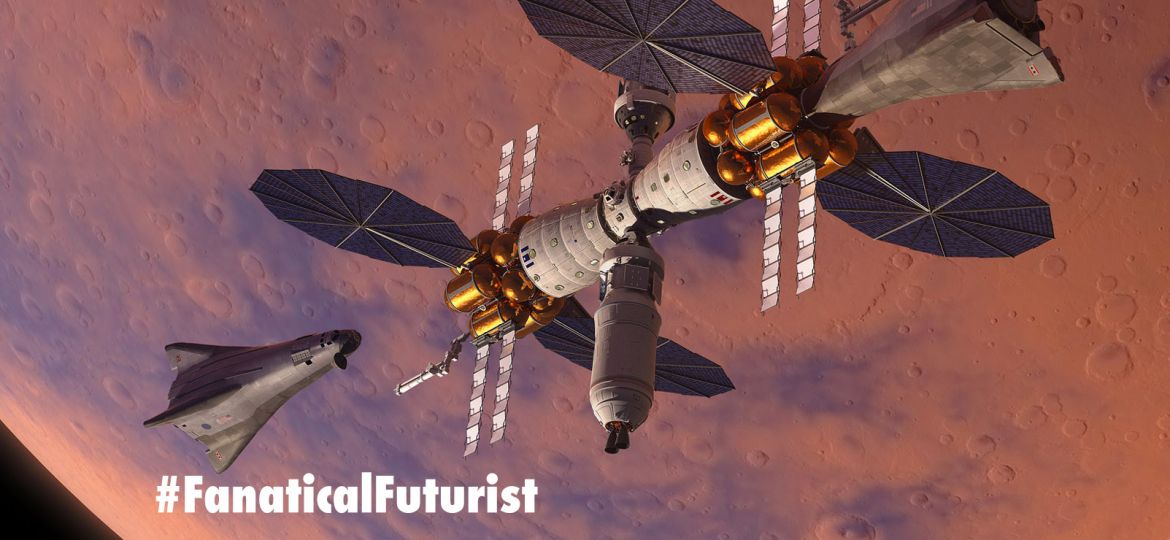
WHY THIS MATTERS IN BRIEF
- The race for Mars is on and companies are now lining up to get astronauts into orbit, and onto, the red planet, and it’s only a matter of time before it happens
At the International Astronautical Congress in Adelaide, Australia, last week rocket companies, like SpaceX whose founder Elon Musk unveiled his vision for Mars colonies that would eventually house over a million people and Mach 22 inter-continental “aircraft”, and spacefaring nations, lined up to give their vision of the future.
Not to be left out of the spot light though one of the other more ambitious plans that was unveiled at the conference came from not Boeing, who recently signalled their intention to beat Musk to Mars, but Lockheed Martin who introduced their concept for what they called their “Mars Base Camp,” or MBC.
The MBC will primarily be an orbital space station where up to four astronauts can live above Mars, and while Musk envisions building a colony on the surface of Mars, Lockheed Martin is aiming for a more realistic goal – an orbital habitat, similar to todays ISS platform, that can house astronauts for an extended period of time and the intention is that the astronauts will be able to run experiments, survey the planet, explore Mars’ moons, and learn more about what it takes to survive in space and on Mars.
In order to accomplish their goal Lockheed Martin has designed the MBC to have “two of everything,” just in case. Two rocket engines, two sets of fuel pods, and two habitats, and it also has two solar panels to power each section, making four in total.
The centrepiece however is the Orion Crew Capsule that the company has been designing for NASA that will carry the four astronauts, who, who knows, might even be genetically modified according to reports, and once in orbit the crew will be able to take short trips to the planet’s surface using one of two Mars landers. There, they could collect samples and study the surface for short periods of time before returning back to the habitat. According to the company the crew could stay on the planet’s surface for up to two weeks at a time before needing to return to orbit.
While the idea, for now at least, might seem like science fiction, it’s actually highly plausible, and unlike Musks’ vision it draws on technology that already exists, using designs that aren’t too far removed from todays, so as soon as NASA completes its Deep Space Gateway, which it plans on doing sometime in the next decade, it’s now starting to look like Lockheed Martin could soon join Musk in launching their own expeditions to Mars.
















